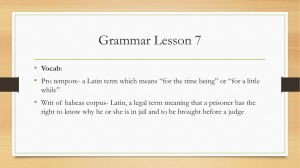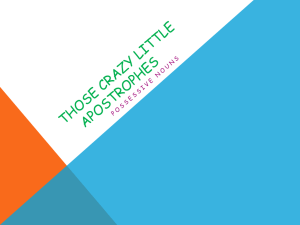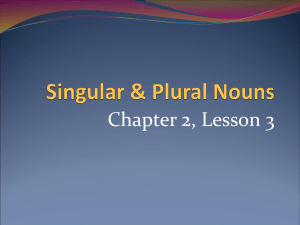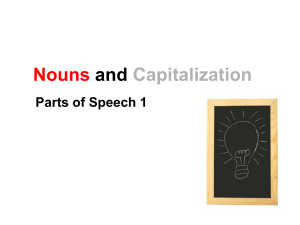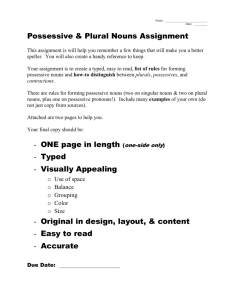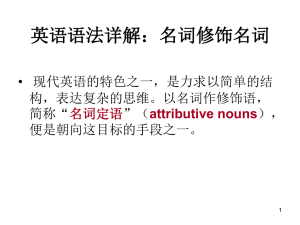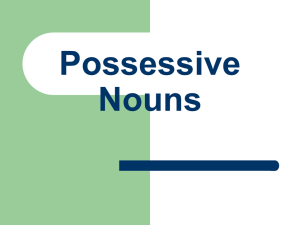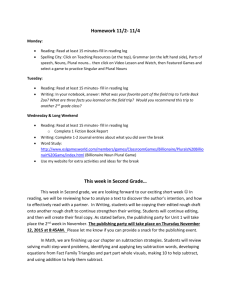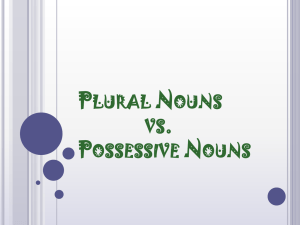Noun Notes - TeacherWeb
advertisement
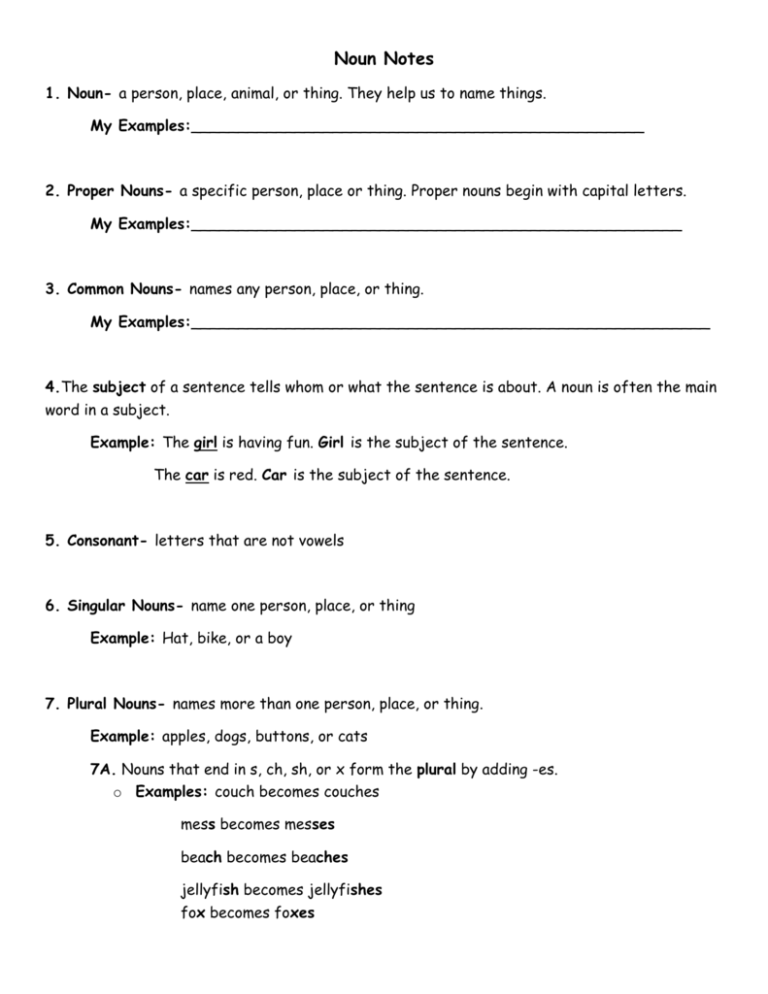
Noun Notes 1. Noun- a person, place, animal, or thing. They help us to name things. My Examples:________________________________________________ 2. Proper Nouns- a specific person, place or thing. Proper nouns begin with capital letters. My Examples:____________________________________________________ 3. Common Nouns- names any person, place, or thing. My Examples:_______________________________________________________ 4.The subject of a sentence tells whom or what the sentence is about. A noun is often the main word in a subject. Example: The girl is having fun. Girl is the subject of the sentence. The car is red. Car is the subject of the sentence. 5. Consonant- letters that are not vowels 6. Singular Nouns- name one person, place, or thing Example: Hat, bike, or a boy 7. Plural Nouns- names more than one person, place, or thing. Example: apples, dogs, buttons, or cats 7A. Nouns that end in s, ch, sh, or x form the plural by adding -es. o Examples: couch becomes couches mess becomes messes beach becomes beaches jellyfish becomes jellyfishes fox becomes foxes 7B. Nouns that end in a consonant (a letter that is not a vowel) and y to make a word plural change they to andi and adding -es. o Examples: puppy becomes puppies dictionary becomes dictionaries 8. Irregular Plural Nouns- most of the time you must change the spelling of these nouns to make them plural. Some plural nouns stay the same. Singular Word man woman child goose mouse tooth foot deer sheep moose Plural Word men women children geese mice teeth feet deer sheep moose 9. Possessive Nouns- shows who or what owns or has something. To make a singular noun possessive, add an apostrophe and an -s. Example: My doll’s hair color is brown. **There is only one doll being talked about in this sentence. To make a plural noun that ends in -s possessive, add only an apostrophe. Example: The players’ shouts were very loud. **The player has more than one shout in this sentence.

